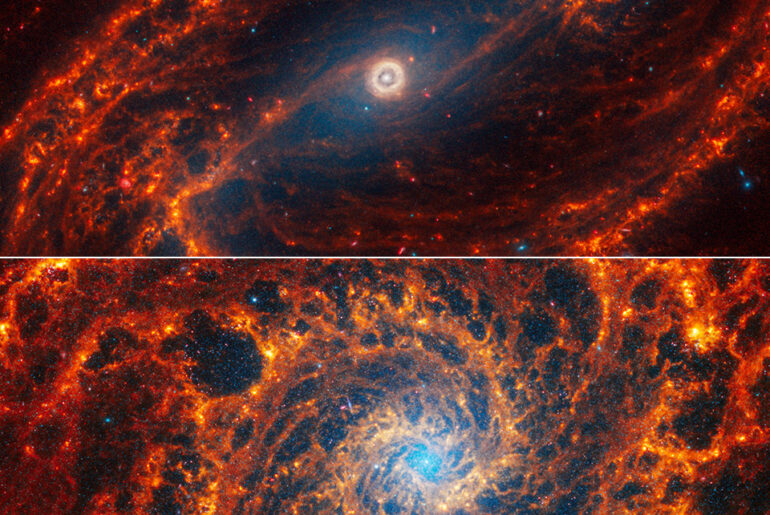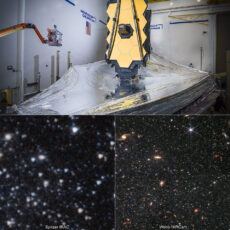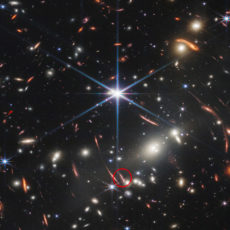
James Webb captured these 19 mind-bending pictures of spiral galaxies as part of NASA’s Physics at High Angular resolution in Nearby GalaxieS (PHANGS) program, which is supported by more than 150 astronomers worldwide.

These spiral galaxies look different than the images captured by Hubble because Webb’s NIRCam (Near-Infrared Camera) shows them in blue tones, with some stars spread throughout the spiral arms, while others are clumped tightly together in star clusters. JWST’s MIRI (Mid-Infrared Instrument) data highlights glowing dust, displahing where it exists around and between stars.
- ADVANCED TECH MEETS ICONIC DESIGN: The NexStar 8SE pairs Celestron’s legendary orange tube with a fully computerized GoTo system—ideal for those...
- 8-INCH SCHMIDT-CASSEGRAIN OPTICS: The large 8" aperture gathers enough light to reveal fine lunar details, cloud bands on Jupiter, and deep-sky...
- FULLY AUTOMATED GoTo MOUNT WITH NEXSTAR+ HAND CONTROL: Use the NexStar+ hand control to select from a 40,000+ object database. The computerized mount...

Webb’s new images are extraordinary. They’re mind-blowing even for researchers who have studied these same galaxies for decades. Bubbles and filaments are resolved down to the smallest scales ever observed, and tell a story about the star formation cycle,” said Janice Lee, a project scientist for strategic initiatives at the Space Telescope Science Institute in Baltimore.










